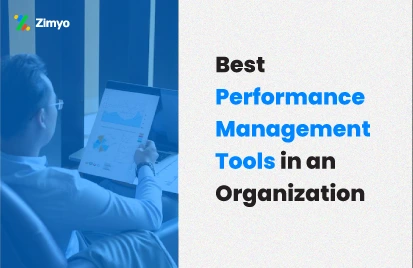Ever notice how great it feels when someone praises you—whether it’s your mentor, a colleague, or your boss? But what about when you need to praise yourself? It’s called Self-Appraisal. Feels a bit awkward, right? That’s because Self-Appraisal isn’t something we do often in our work culture. We usually count on others to give us feedback during appraisals. But have you ever stopped to think about how you view yourself as a professional? What do you think about your own work?
We often don’t, but maybe we should choose self-appraisal often!
Assess your own performance, understand your strengths and weaknesses without waiting for someone else to tell you. Sounds empowering, right? Self-appraisal lets you take a step back and look at how you’re doing in your job. In this way, you’re holding up a mirror to your professional self.
So, what exactly is self-appraisal? It’s a process where you evaluate your own work performance. Think of it as a tool to help you recognize what you’re doing well and where you’re lacking. By doing this, you understand your own abilities and areas for growth.
Have you ever considered how you feel about your work? What are your strong points? Where could you do better? Self-appraisal answers these questions and more. Resultantly, giving you a clearer understanding of your professional self.
Now, let us understand self-appraisal in detail.
What Self-Appraisal is Basically?
Ever wish you had a platform to really showcase your contributions at work? Self-appraisal is exactly that! It gives you the chance to tell your managers and colleagues about the valuable work you’re doing for the success of your organization. No more feeling unheard or misunderstood during feedback sessions!
But let’s be real—writing a self-appraisal can feel tricky. How do you start? What should you include? How do you highlight your achievements without sounding boastful? If these questions are spinning in your head, don’t worry! We’re here to guide you through the self-appraisal process step by step.
Think of self-appraisal as your moment to shine, to articulate your story, and to make sure your hard work doesn’t go unnoticed. This process not only helps you present your side but also addresses common complaints about feedback from superiors. It’s your chance to share your perspective and align it with the organization’s goals.
Why is Self-Appraisal so Popular?
Self-Appraisal is not just beneficial for employees; it’s helpful for employers too! It gives a clear picture of how employees see themselves and checking if managers are being fair in their feedback. Also, Self-Appraisal helps to pinpoint areas for improvement, to make better strategies for future appraisals.
Research shows that 45% of employees value feedback from their peers and clients, yet less than 30% actually receive it. That’s where self-appraisal steps in. It improves the feedback process significantly. Let’s understand some major benefits of self-appraisal.
1. Increases Employee Engagement
Who doesn’t want to feel valued and heard? When employees get a chance for Self-Appraisal and to review their own performance, they become more engaged in the appraisal process. They’ll be eager to discuss their achievements and participate actively.
2. Encourages Ownership
Want your team to take more ownership of their work? Self-appraisal is the way to go. The performance appraisal process will not be completed if employees don’t share their feedback and it will get delayed. Nobody wants that. This is why they feel more accountable for tracking their performance.
3. Strengthens Work Relationships
Think about it: continuous conversations between employees and managers can really improve work relationships. When both sides give and receive feedback, communication becomes easier. They can brainstorm together to overcome challenges and improve performance. Thus, Self-Appraisal is teamwork at its best!
4. Gets Rid of One-Way Communication
Tired of one-sided feedback? Self-appraisal opens the door to two-way communication. Employees feel more confident to share their expectations and thoughts with their managers. It’s all about dialogue, and it makes a huge difference.
5. Empowers Employees
Trusting employees with something as important as self-appraisal sends a clear message: the organization cares about their input. This empowerment boosts their motivation, making them more likely to deliver their best. It’s all about trust and respect.
6. Promotes Career Growth
We all want to grow in our careers, right? But how can we seize those opportunities without the right skills and abilities? Self-appraisal helps employees identify their strengths and weaknesses. They can then work on improving and upgrading their skills, paving the way for their career growth.
Thus, Self-appraisal isn’t just a trend; it’s a powerful tool for increasing performance and promoting growth. Give it a try! As your next career hike might just be a Self-Appraisal away!
How to Write a Self-Appraisal?

Ever found yourself staring at a self-appraisal form, unsure where to start? You’re not alone! Many of us feel a bit lost when it comes to evaluating our own performance. But fear not, we’ve got some handy tips to help you nail that self-assessment.
1. Be Clear About the Objective
First things first, understand why you’re doing a self-appraisal. It’s an important part of your overall appraisal? Will it influence your raise or promotion? Or is it just a performance review? Knowing the purpose helps you give the best responses and align your self-assessment with what’s expected.
2. Be Honest, Be Specific
When you’re doing Self-Appraisal or talking about your accomplishments, be genuine. Don’t exaggerate—just be specific about what you have achieved. Mention the goals you had set and how you met them. Adding examples can make your points stronger and more convincing.
3. Have the Courage to Acknowledge Failures
We all have off days. It’s okay to admit when things didn’t go as planned. Acknowledging your failures shows self-awareness and a willingness to improve. Instead of blaming others or making excuses, focus on how you can overcome those hurdles next time. Therefore, this can be termed as the perfect form of Self-Appraisal.
4. Talk About Your Learnings
Your self-appraisal isn’t just about successes and failures. It’s also about what you’ve learned along the way. Did you pick up any new skills? Implemented a new strategy? Brought fresh ideas to the table? Share these insights to show your growth and adaptability.
5. Numbers Speak for Themselves
When highlighting your accomplishments, numbers can really back you up. In Self-Appraisal, use stats or specific facts to give substance to your claims. And remember, give credit where it’s due. Acknowledge the teamwork and collaboration that contributed to your successes. Stay professional, humble, and avoid criticizing others.
6. Convey Your Needs
If you think you could excel in a different area or need additional resources to perform better, let your managers know. Don’t hesitate to ask for courses, mentorship, or anything else that could help you improve. Being proactive about your development during Self-Appraisal, shows your initiative taking capabilities.
Therefore, by following these tips, you’ll be able to write a self-appraisal that’s honest, insightful, and professional. Ready to get started? Your best self-assessment yet is just a few thoughtful reflections away!
Here are a few Examples on...
How to Showcase Your Achievements Without Sounding Like You’re Bragging?
We all know how to praise ourselves, but let’s face it—no one wants to come off as a show-off, right? So, how do you highlight your accomplishments without making it awkward? Here are some phrases and examples of Self-Appraisal to help you tell your peers or managers about your achievements or abilities. Ready to impress? Go on!
A. Showcase Your Communication Skills
Let’s start with communication. It’s crucial in any role. Here’s how you can frame it:
- “I clearly communicate my ideas and opinions to all stakeholders.”
- “I’ve rarely encountered issues due to miscommunication affecting my work.”
- “All my team members can easily communicate and collaborate with me.”
- “I actively participate in all office and team meetings.”
- “I don’t hold back from providing honest and constructive feedback to my peers or managers.”
- “I’ve never had any problems communicating with members of other departments.”
- “I always appreciate my team members for their contributions and good performance.”
B. Highlight Your Work Performance
Next up, let’s talk about your work performance. How do you show you’re dedicated and efficient?
- “I always strive to deliver my best.”
- “I am very dedicated to my work and never miss a deadline.”
- “Instead of focusing on problems, I look for solutions.”
- “I even help other team members with their tasks or any problems they face.”
- “I believe in teamwork and treat all members equally.”
- “I have outperformed myself this month by achieving my goals with more than 50% improvement.”
- “I constantly seek to improve by upgrading my skills and learning new things.”
C. Show that YOU ARE reliable!
Reliability is a big deal. Show how dependable you are:
- “I am punctual, honest, and kind.”
- “I prioritize my work and focus on delivering projects on time.”
- “I am open to feedback and don’t hesitate to seek guidance when needed.”
- “I try to be there for my teammates.”
- “I never engage in defaming others.”
- “I avoid blame games.”
D. Present Your Customer Handling Abilities
If you deal with customers, here’s how to highlight those skills:
- “I have consistently received positive customer feedback.”
- “I’ve never had a bad relationship with any customer.”
- “I effectively listen to customer questions, offer suggestions, and resolve their queries.”
- “[Percentage]% of customers have given a five-star rating on my satisfaction survey.”
- “I always strive to understand customers’ needs and offer suitable solutions.”
E. Highlight Your Innovative and Creative Side
Innovation is a key asset. Here’s how to present it:
- “I constantly seek solutions or strategies to improve our work processes.”
- “I have an agile mindset.”
- “I approach challenges with a positive attitude.”
- “I love collaborating with others and getting their input on our work processes.”
F. Focus on Growth and Development
Growth and development are crucial. Here’s how to show your commitment:
- “I set goals that are important for both my personal and professional growth.”
- “I seek out opportunities to grow in my current role within this organization.”
- “I am a quick learner. Recently, I have learned [specific skills].”
- “I have a clear vision for my career and know what I want to achieve in this role.”
G. Showcase Your Zeal to Improve Performance
Lastly, be honest about areas for improvement. It shows self-awareness and a desire to grow:
- “I realize I have great potential but can improve my performance.”
- “I need to be more transparent with my team members.”
- “Sometimes I shy away from difficult conversations due to my positive nature.”
- “I face difficulties presenting in front of large groups and need to improve on that.”
- “While I focus on my work, sometimes I take leaves without informing others in time.”
- “I have ideas but often lack the confidence to present them to others.”
- “I struggle with asking for help, which can affect my performance.”
- “I need to continuously upgrade my skills and knowledge.”
Template for Your Self-Appraisal: Make Your Voice Heard!
Willing to nail your self-appraisal? Here’s a friendly, engaging template to help you showcase your achievements and areas for improvement. Let’s make this process smooth and impactful!
First of all, thank you for giving me the opportunity to conduct a self-appraisal. I truly appreciate this gesture from the organization. Now, let’s dive into the self-assessment part.
1. My Job Responsibilities and Goals
I was assigned the following job responsibilities and had the following goals set for my performance evaluation. Here’s what I achieved:
Targets Completed:
- [Goal 1]: Mention specific results, numbers, or facts.
- [Goal 2]: Detail the outcomes, highlighting any significant achievements.
- [Goal 3]: Provide concrete examples and data to back up your accomplishments.
2. New Skills and Learning
Apart from achieving my goals, I’ve also expanded my skill set and knowledge base:
Achievements:
- New Skill 1: Any new skill you’ve learned.
- Course Completed: Mention any course you took or completed.
- Other Learnings: Any additional skills or insights you gained.
3. Areas for Improvement
While I’ve had many successes, there are areas where I didn’t perform as well as I’d hoped. Here’s what I’ve identified:
Challenges Faced:
- [Area 1]: Specific goals or tasks where performance fell short.
- [Reason 1]: Reasons for not achieving these goals.
4. Solutions and Moving Forward
I believe we can overcome these challenges with a few strategic changes:
Proposed Solutions:
- [Solution 1]: Any ideas or strategies you have in mind to improve.
- [Solution 2]: Suggestions for additional resources or support needed.
By following this template, you can present a balanced, honest, and constructive self-appraisal that highlights your strengths, acknowledges areas for growth, and suggests actionable solutions.
The Bottom Line
Do you struggle to remember tasks or accomplishments from months ago? It happens to the best of us! But here’s the good news: performance management software can be your best assistant! Not only does it help you set SMART goals, but it also tracks your progress and performance in real time. Imagine having all your performance data at your fingertips, accessible anytime, anywhere. Sounds great, right?
So, that’s the scoop on the self-appraisal process. You can use the examples we talked about, or feel free to refine them to fit your unique needs. Our key advice? Be honest and clear. This isn’t about buttering up your manager. It’s about how you see yourself, how you can grow as a professional, and what makes you shine brighter than the rest. Hence, stay geared up to make your self-appraisal count! You’ve got this!




